7 Best Spices and Herbs to Fight Inflammation, According to Experts

Systemic inflammation is at the root of a range of chronic health conditions, including heart disease, cancer, Alzheimer’s disease, arthritis, diabetes, and more. That’s why following a healthy diet full of anti-inflammatory foods can help boost your long-term wellness, lengthening your lifespan and health span. This includes spices and herbs, which have natural compounds that can help reduce inflammation by influencing the body’s immune response and neutralizing harmful free radicals—unstable molecules that can damage cells.
So, the next time you cook, remember that the power of nature’s pantry is right there in the seasonings, ready to support your wellness from the inside out. Try these seven doctor-recommended spices and herbs for inflammation.
RELATED: 6 Common Causes of Inflammation That Have Nothing to Do With Your Diet.
1
Garlic
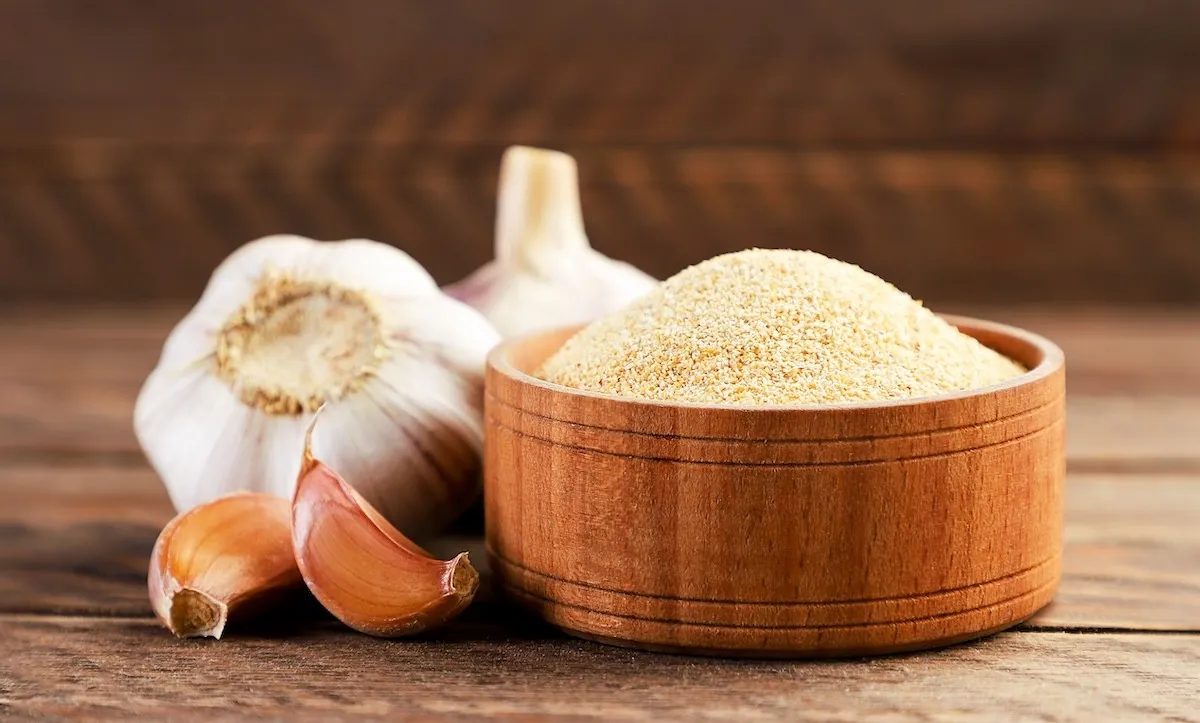
In its unprocessed form, garlic is technically a root vegetable. However, it can also be used as a powdered herb to flavor your food.
“Garlic is another powerhouse herb with strong anti-inflammatory effects, largely due to sulfur compounds like allicin,” explains Raj Dasgupta, MD, chief medical advisor for Garage Gym Reviews.”Garlic helps lower inflammation by modulating the immune system and reducing inflammation markers.”
“It’s been shown to benefit conditions like heart disease by promoting healthy circulation and reducing oxidative stress,” he adds.
2
Cinnamon

Sprinkled over oatmeal or baked into your favorite dessert, cinnamon isn’t just a tasty spice—it’s also a natural anti-inflammatory.
“The active compound cinnamaldehyde helps reduce inflammation by blocking certain pathways in the body,” Dasgupta tells Best Life. “Small studies have associated cinnamon with better regulation of blood sugar levels, which can reduce inflammation caused by insulin resistance.”
3
Basil
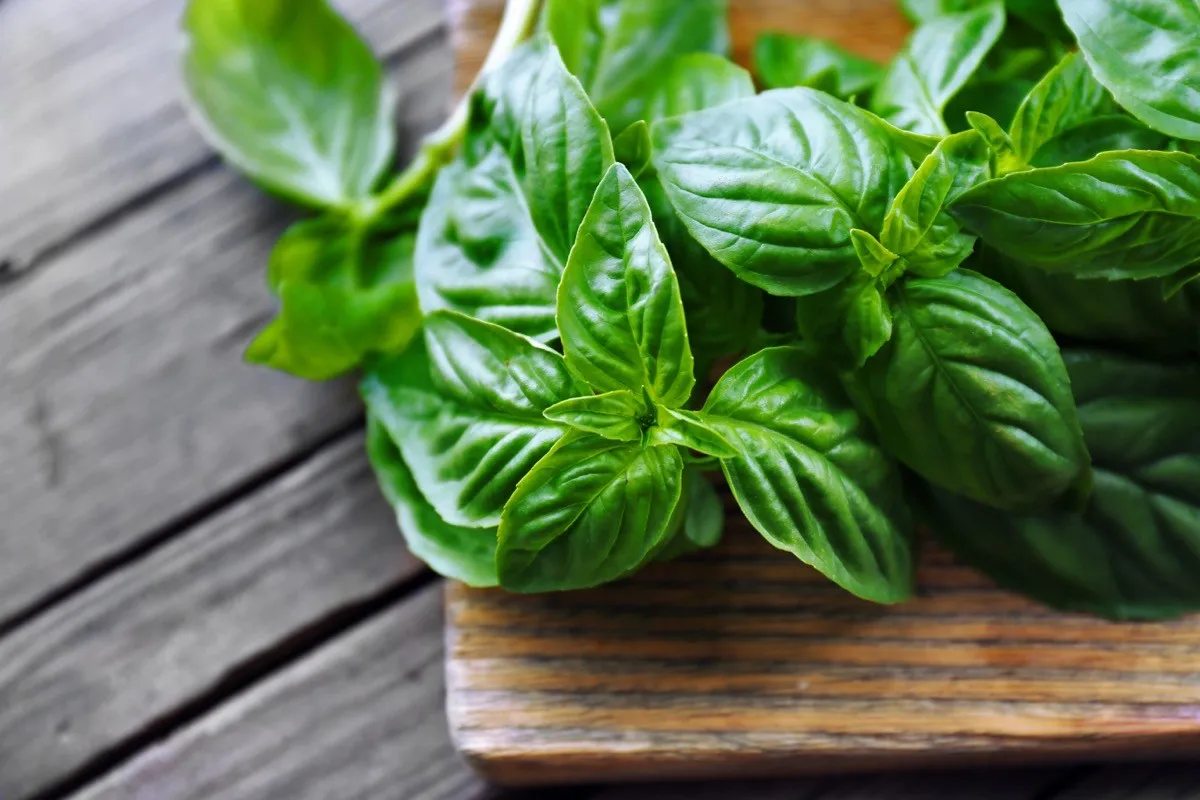
Chris Mohr, PhD, RD, fitness and nutrition advisor at Barbend, next suggests incorporating basil into your cooking.
“Basil contains eugenol, a natural compound that fights inflammation at the cellular level,” he shares. “This may be beneficial for issues like heart disease and intestinal problems.”
RELATED: These 6 Foods Can Lead to Better Brain Health—But You’re Probably Not Eating Them.
4
Rosemary
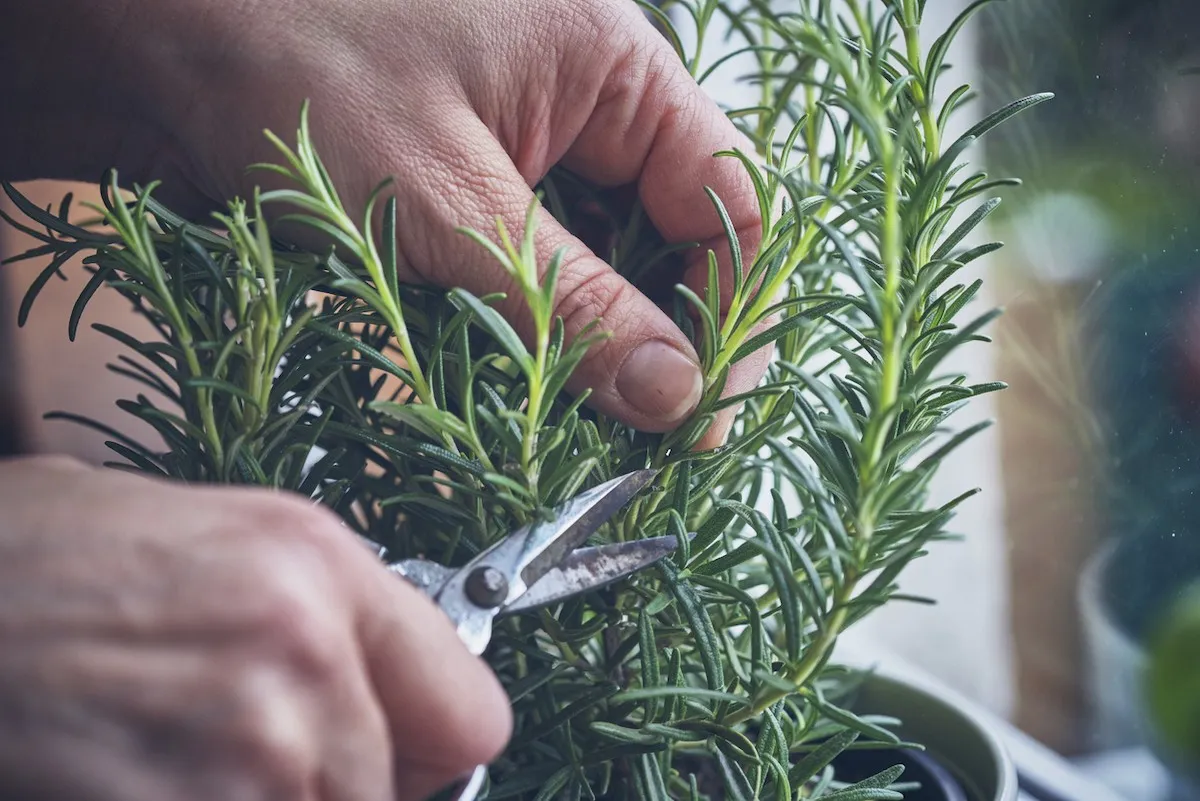
Rich in phytocompounds and antioxidants, rosemary has a long history of medicinal use—thanks in particular to its anti-inflammatory capabilities.
“It’s good for immune modulation and can help relieve inflammation associated with allergies and asthma through rosmarinic acid,” a polyphenol compound found in many herbs and plants, including rosemary, basil, sage, mint, and perilla, explains Mohr.
5
Cayenne pepper
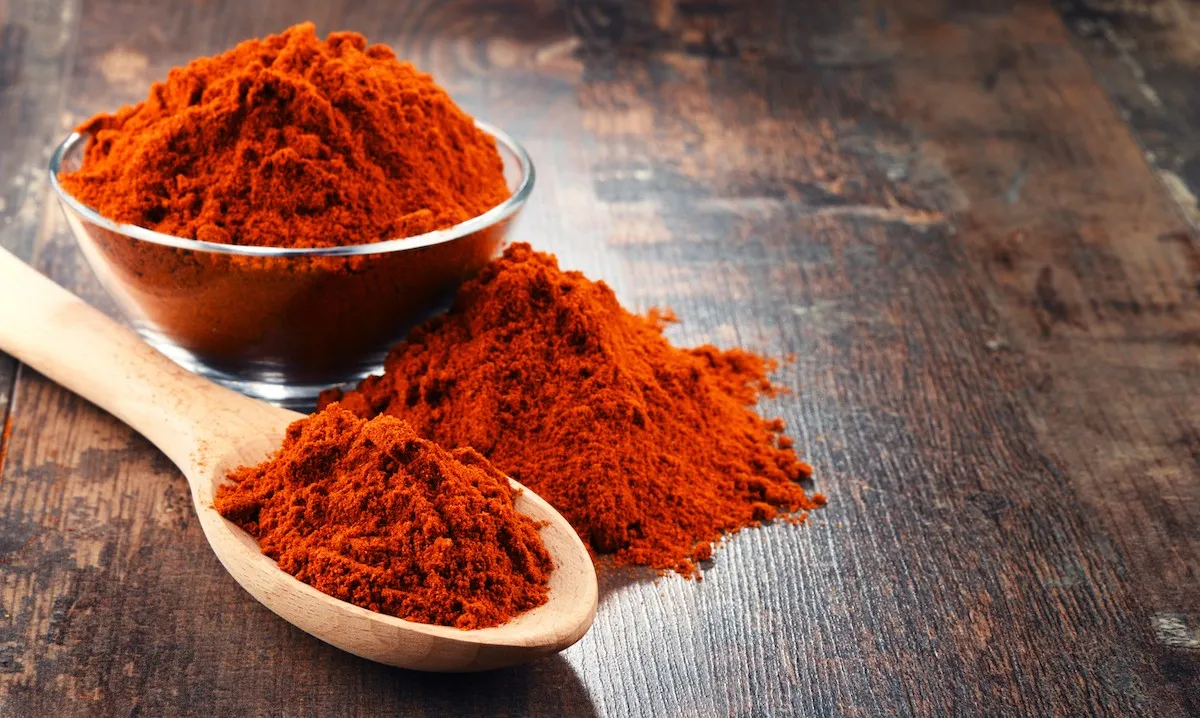
Because cayenne pepper contains capsaicin, it not only provides heat but also anti-inflammatory benefits.
“Capsaicin blocks inflammatory substances in the body and is often used in creams and gels for topical localized pain relief, especially for joint inflammation,” Dasgupta says. “Including cayenne pepper in your meals can support joint health and ease inflammation-related pain, making it a simple but effective choice for managing inflammation.”
“However, most evidence supports topical application of capsaicin for joint pain relief rather than ingesting it orally; consult a healthcare professional before using cayenne pepper for joint pain,” he notes.
And be cautious with how much you add to your food—it’s spicy!
6
Curcumin

Curcumin, a concentrated form of turmeric, can lower your inflammation and oxidative stress.
“Turmeric or curcumin can be especially helpful for chronic conditions like arthritis and metabolic syndrome. Adding some black pepper can improve the absorption and effectiveness of curcumin,” Mohr notes.
RELATED: Tomatoes Are the Healthiest Fruit in the World, CDC Says—Here’s Why.
7
Green tea
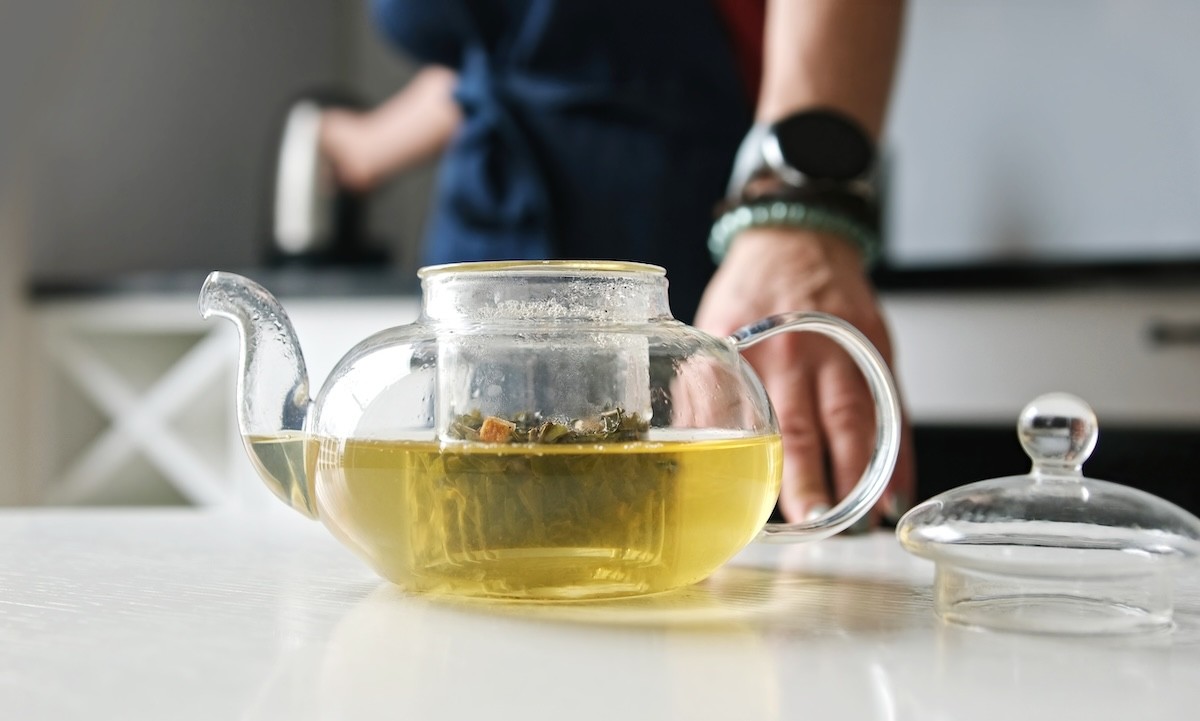
Green tea contains ample antioxidants called catechins, which are known to protect against cellular damage caused by free radicals and reduce overall inflammation.
“Green tea is packed with polyphenols, particularly epigallocatechin gallate (EGCG), which has impressive anti-inflammatory and antioxidant effects,” Dasgupta points out. “EGCG works by inhibiting inflammatory enzymes in the body.”
“Drinking green tea regularly can help reduce inflammation markers and may lower the risk of chronic conditions like heart disease,” he adds. “Plus, it’s a calming drink that can help reduce stress, which also plays a role in inflammation.”